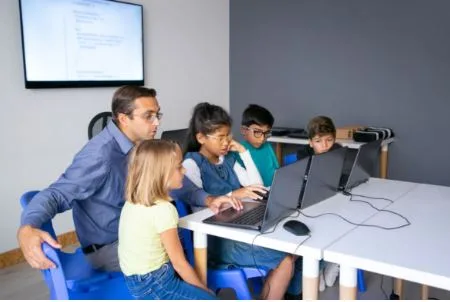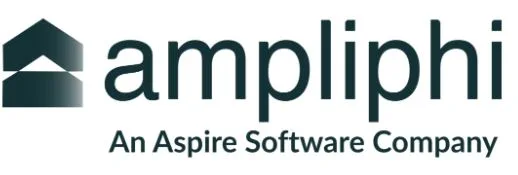The Rise of EdTech Micro-Schools: A Business Opportunity in Disruption
The traditional classroom is changing fast. Over the last few years, a new kind of learning model has started gaining ground—micro-schools powered by EdTech. These schools are small, often with fewer than 50 students, and use online tools, digital platforms, and tech-driven teaching to deliver highly personalized education. For families, they offer flexibility. For students, they unlock learning at their pace. For entrepreneurs, they’re a business opportunity wrapped in a mission.
While traditional schools focus on scale, micro-schools focus on outcomes. Parents are looking for alternatives that match their values, especially post-pandemic. Homeschooling grew rapidly, but not every parent wants to be a teacher. That’s where micro-schools step in—offering structure, community, and smart technology without the red tape of traditional institutions.
Why Micro-Schools Make Sense Today
Modern families want more choices in how and where their children learn. They want fewer distractions, more attention, and better results. Micro-schools can deliver that by combining tech tools with personalized instruction and agile learning models. These schools often operate out of homes, coworking spaces, or small campuses, reducing overhead and offering a more focused experience.
The business case is strong: low setup costs, strong demand, and recurring revenue from tuition or subscriptions. Plus, many micro-school founders are teachers, parents, or edtech professionals—people who deeply understand learning. They’re not trying to replace public schools; they’re offering another option.
A Platform-First Mindset
To scale micro-schools, platforms matter. One powerful example is Tutorbase, founded by Sandro Kratz.
“We started Tutorbase to solve our own problem—running multiple tutoring centers across Asia and wasting hours on admin. We couldn’t find a platform that actually worked. So we built one that cuts admin time in half and prepares us for an AI-powered future. Now, more than 500 centers use it globally, and we’re just getting started.”
Tutorbase manages everything from session scheduling to invoicing and payroll, giving educators more time to teach and grow. This kind of infrastructure is essential for micro-schools to scale efficiently without sacrificing quality.
How AI is Changing the Game
Artificial intelligence is a core part of the EdTech micro-school revolution. Today’s smart platforms don’t just manage learning—they shape it. Adaptive quizzes, personalized study paths, and intelligent progress tracking help students stay motivated while giving educators deeper insights.
Cognito Education, led by Chief Product Officer Jono Ellis, is setting new standards in AI-driven learning:
“At Cognito, we believe studying should be smarter, not harder. Our AI tools help over a million students revise more effectively using spaced repetition, active recall, and personalized content. We started on YouTube—and now we’re building a full platform designed to help every learner, no matter where they are. The right tech can change everything.”
What makes Cognito stand out is its evidence-based approach. Rather than overwhelm students with content, it guides them to the right materials at the right time. For micro-schools, tools like this offer students independent learning while keeping outcomes high.
The Business of Learning Communities
Micro-schools succeed not just because of tech—but because of strong community. When parents feel involved and students feel supported, everyone wins. Successful operators understand this and build trust at every level.
Yoan Amselem, Managing Director of the German Cultural Association of Hong Kong, has led educational organizations that emphasize intercultural collaboration and community-led learning:
“I’ve seen firsthand how cultural awareness strengthens education. When we embed local values with global learning goals, students become better thinkers and citizens. That’s what micro-schools have the power to do—connect the local with the global. Our mission has always been to deliver immersive, meaningful education that fits the world we live in now.”
Amselem’s experience shows that leadership in education today requires more than academic knowledge. It needs vision, adaptability, and cultural fluency—skills that micro-school founders often bring naturally.
Market Trends and Investment Potential
According to recent data, the micro-school market is expected to grow significantly in the next 5–10 years, especially in urban and tech-savvy regions. Parents are more open than ever to alternative models that offer strong academics, emotional safety, and digital readiness. Meanwhile, investors are eyeing the sector as the next major wave of disruption in education.
From a business perspective, there’s room for growth in multiple areas:
- Operating micro-schools
- Providing curriculum-as-a-service
- Developing backend tools for scheduling, grading, and feedback
- Offering teacher training focused on digital and hybrid methods
Entrepreneurs who understand both pedagogy and product will lead the next wave. Many micro-schools also serve niche populations—students with learning differences, gifted learners, or expat families—which allows for specialization and community-driven growth.
Lessons for Entrepreneurs and Educators
Building a micro-school isn’t easy. It requires regulatory knowledge, parent trust, and a clear value proposition. But for those who succeed, the impact can be deep and lasting. These schools often achieve higher student engagement and better outcomes because they’re built with purpose and precision.
One key tip is starting small—pilot programs in one location, with a few families. Using tools like Tutorbase or Cognito’s learning engine can keep operations tight and results measurable. Founders should also invest time in community building, digital marketing, and building strong referral networks.
Final Thoughts: Opportunity in Disruption
The rise of EdTech-powered micro-schools represents more than a trend—it’s a shift in how we think about learning and leadership. At a time when big systems feel stuck, small, smart, and agile models are thriving.
With the right tools, values, and vision, micro-schools can serve as both a better way to learn and a great business to build. As Sandro Kratz puts it, “When you give educators better tools, they create better futures.”





